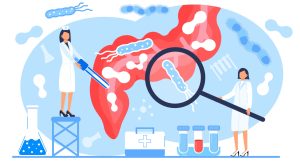There are various rumors about what not to eat and drink on an empty stomach. For example, you cannot drink water on an empty stomach, otherwise it will be more harmful than skipping breakfast; you cannot eat bananas on an empty stomach; you cannot drink milk on an empty stomach, etc.
Do these claims make sense? What is the best thing for children not to eat on an empty stomach?
01 Is drinking water on an empty stomach in the morning more harmful than skipping breakfast?
There is no scientific basis.
Ensuring adequate fluid intake every day is crucial to health. Insufficient water intake will lead to dehydration; dehydration will affect people’s consciousness and emotions, can also lead to high body temperature, and may also lead to problems such as constipation and kidney stones. In addition, water has no calories, so drinking water can also help with weight control.
Water helps our body maintain normal body temperature, lubricate and cushion joints, and protect the spine and other sensitive tissues; water can also help our body excrete metabolites through urination, perspiration, and defecation. In hot weather, heavy exercise, fever, vomiting and diarrhea, etc., we need to take in more water/fluid.
If you feel a little thirsty when you wake up in the morning and the color of your morning urine is relatively dark, it indicates that your body may be slightly dehydrated. Therefore, if you wake up thirsty and drink a glass of water, there is no so-called harm. On the contrary, when the human body is short of water, replenishing water in time can avoid the harm of dehydration.
Generally speaking, whether you drink water on an empty stomach or on a full stomach, in the morning or at other times, you should ultimately pay attention to whether you have sufficient water intake. Whenever you are thirsty, you can drink; usually have a water cup or kettle on hand, and you can drink some water continuously to avoid dehydration.
02 Can’t drink milk on an empty stomach?
no.
In fact, the statement that common sense can deduce this is unreliable.
If you cannot drink milk on an empty stomach, and drinking milk on an empty stomach will damage the intestines and stomach, then before adding complementary foods, all babies drink milk on an empty stomach, and their intestines and stomachs have already been damaged.
In fact, as long as the child likes to drink and does not feel uncomfortable after drinking, he can drink milk on an empty stomach.
Of course, if you find that your child has bloating, diarrhea, nausea, abdominal pain, etc. after drinking milk on an empty stomach, and these symptoms are significantly relieved or disappear after eating something first and then drinking milk, then you should consider letting the child eat first and then drink milk.
And if the child develops gastrointestinal symptoms or rashes as long as he drinks milk, regardless of whether he drinks milk first or later, he needs to see a doctor in time to further investigate possible causes such as lactose intolerance or milk protein allergy.
03 Can’t eat bananas on an empty stomach?
no.
As for not eating bananas on an empty stomach, there are some opinions both at home and abroad. The general meaning is that bananas are rich in potassium and eating them on an empty stomach is bad for the heart.
Bananas are indeed rich in potassium, but for ordinary healthy people, whether they eat bananas on an empty stomach or at other times, there is no need to worry about the potassium in bananas affecting their heart health.
Of course, if you have kidney disease, you need to be wary of the potassium in bananas, whether fasting or not.
Our body uses the kidneys to balance potassium and sodium levels in the body. If the kidneys are unable to metabolize these elements properly, causing potassium to accumulate in the body, this may affect heart rhythm.
Therefore, people with kidney disease may need to limit potassium intake in their diet. Generally, potassium from dietary sources will be calculated in detail after individualized assessment by a doctor or clinical nutritionist.
For everyone’s interest, the following are high-potassium foods (note: this does not mean unhealthy, but people with kidney disease should be wary of the following high-potassium foods):
High potassium foods
Avocados, bananas, dates, oranges and orange juice, potatoes, pumpkin, spinach, sweet potatoes, tomatoes and tomato juice.
Generally speaking, healthy people, whether adults or children, can eat bananas normally whether they are fasting or not. For special people with kidney disease, they need to pay attention to their potassium intake. Regardless of whether they are fasting or not, they should pay attention to the intake of high-potassium foods such as bananas.
04 It is best not for children to eat these three fruits on an empty stomach.
Lychee, longan, rambutan
You may have seen news reports about children dying from eating lychees on an empty stomach, such as the one below. Because of these cases, you may have heard of “lychee disease”.
“Lychee disease” refers to symptoms related to hypoglycemia that occur after eating a large amount of lychees on an empty stomach. In severe cases, convulsions, confusion, coma, and even death may occur.
As for why eating lychees can cause “lychee disease”, there is no clear conclusion; but it is currently believed to be related to two toxins in lychees: hypoglycine A (Hypoglycin-A) and α-methylenecyclopropylglycine (α- (Methylenecyclopropyl) glycine, MCPG).
Hypoglycine A is a non-protein amino acid found in plants of the Sapindaceae family. α-Methylenecyclopropylglycine is a metabolite of hypoglycine A. Both can affect the body’s blood sugar metabolism and lead to hypoglycemia. Among them, unripe lychees contain higher levels of hypoglycine and α-methylenecyclopropylglycine than mature lychees.
In April 2017, a scientific research paper in The Lancet Global Health found that the “lychee disease” that occurred in Muzaffarpur, India in 2014 was related to hypoglycine A and α-methylenecyclopropylglycine, and Suggestions such as reducing lychee intake as much as possible are made.
According to past reported cases, “lychee disease” is more common in children. Therefore, if children must eat lychees, they must pay special attention to the right amount, avoid eating them on an empty stomach, and choose mature lychees.
It should also be reminded that the two toxins found in lychees and related to “lychee disease” are actually also found in longan and rambutan, so we should also pay attention to them.
How much lychee is appropriate? To make it easier for everyone to estimate, let’s take a look at an example:
For children aged 2 to 5 years old, it is recommended to consume 100-150 grams of fruit per day; one lychee is calculated as about 20-25 grams. If the entire amount of fruit for the whole day comes from lychees, it will only be 5 berries.
For children, it is recommended to have a diverse diet. As for fruits, it is also recommended to choose fruits of different colors to ensure the intake of various nutrients. Therefore, for children aged 2-5, if they eat lychees, they should not exceed 5 lychees a day.
Let me remind you that lychees, longans, and rambutan are all fruits with stones. Children under the age of 3-5 should also be alert to the risk of suffocation.




